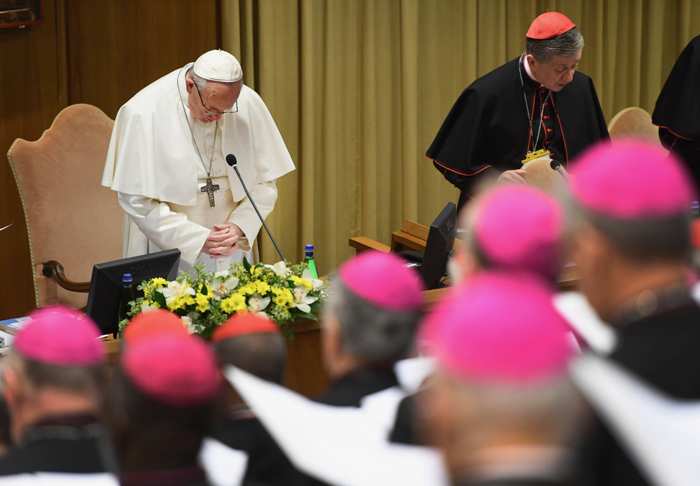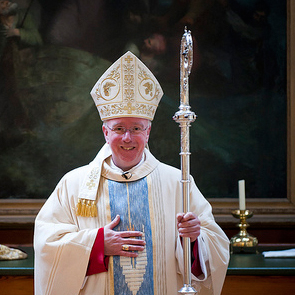A senior English Catholic bishop has issued new norms on healing, deliverance and exorcism to meet the "need for spiritual welfare and safeguarding" of the faithful.
The norms come as the the Pope's meeting for the protection of minors takes place in Rome.
Bishop of Portsmouth Philip Egan, one of the most respected bishops in the European hierarchy, recommends all Catholics pay heed to spiritual welfare. Giving advice on practicalities for healing, deliverance and the rare ministry of exorcism, he recommends: "Make sure you have a Communion set in your home with cloth, crucifix and candles."
Catholics should also "try to keep Sunday special as a day of humble service of the sick, the infirm and the elderly".
The new norms for the diocese of Portsmouth on healing and deliverance ministry are released alongside his pastoral letter, "Healing", to be read at Mass in all parishes in the diocese this weekend.
"These norms have been formed at a poignant time, while safeguarding remains a top priority for Church officials, with the abuse meeting taking place in Rome during these days," the Portsmouth diocese said in a statement.
"By introducing such norms, Bishop Philip has intended to address the need for the spiritual welfare and safeguarding of the faithful in the diocese of Portsmouth to remain of the utmost importance."
Bishop Egan has also set up a “Healing Advisory Group”, the aim of which is “to act as a point of reference for healing ministry and ministers”.
While recognising as "laudable" the many pastoral initiatives of healing that have developed over the years, Bishop Egan emphasises that such ministry “must adhere to the Norms, as well as the national policies relating to safeguarding the vulnerable”.
Referring to the three practices – healing, deliverance and exorcism – he says for example that in individual prayer for healing, national safeguarding policy requires that, in addition to the minister and the individual, at least one other person should be present.
He also makes clear that healing is primarily to be sought in the sacraments, “prayer and the sacraments are the ordinary means of grace that God has provided”.
In the pastoral letter, he writes: "In the Gospels, Jesus went through towns and villages curing diseases and sickness, teaching in the synagogues and proclaiming the Good News. The miracles Jesus worked revealed Who He was as God the Son, the Messiah, our Saviour, and the salvation He won for us by His Death and Resurrection. The Heart of Jesus abounds in mercy and the Church today continues His saving work through the sacraments and prayer, through teaching the Truth, and through the pastoral care of the sick and afflicted."
He describes the three overlapping ministries of healing: "First, there is healing ministry proper, as just described. Secondly, and more rarely, there is deliverance ministry, that is, special prayer to remove obstacles, bondages, memories, entanglements and addictions of a spiritual origin that hold a person back, impair their well-being and prevent their restoration to spiritual and bodily health. And thirdly, very rarely, exorcism, that is, ritual prayer, performed by a priest-exorcist expressly appointed by the Bishop, to cast out Satan and the powers of darkness, which in some manner have taken possession of a person’s soul and faculties."
He recognises the growth of healing ministry in its many forms in the Church, such as prayer-groups that pray for healing or offer the laying on of hands. Some parishes organise healing Masses and special liturgies, with confessions, the Sacrament of the Sick and Benediction. In many, days of renewal with healing and deliverance ministry are scheduled.
He says he has issued the new norms clarify this ministry, given its growth.
"In a parish, the chief responsibility for pastoral care lies with the parish priest. But the Holy Spirit also bestows charismatic gifts of healing, deliverance and discernment of spirits upon individual members of the Church to prosper its life and mission. The Church takes care to discern these charisms, to order their use and to form those called and gifted to use them with prudence and circumspection. No one may practice a ministry of healing, even less the ministry of deliverance, without appropriate permission and without appropriate formation. Such ministries, caring for the vulnerable, are to be exercised in accordance with the Church’s teaching and discipline."



 Loading ...
Loading ...